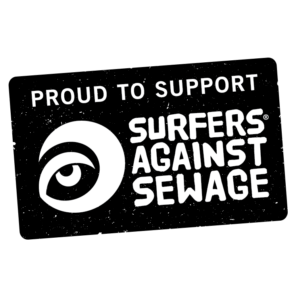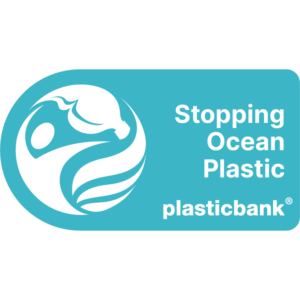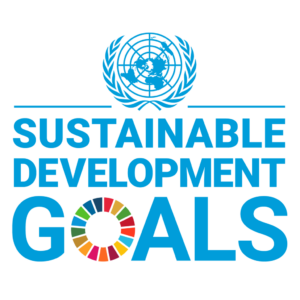World Oceans Day, which takes place on 8 June each year, serves as a reminder of the critical role our oceans play in sustaining life on Earth.
As one of the most neglected of the UN Sustainability Development Goals, it cannot be overemphasised how urgently we need to take action to conserve this water environment that makes up 71% of the Earth’s surface.
This World Oceans Day 2023 it’s time we gave equal billing to life below water as we do to life above it!
Our oceans are facing unprecedented threats from climate change, pollution, overfishing, and habitat destruction – and if we fail to act, then we will all face devastating consequences.
Discover why the sea is so important to life on Earth and find out how to take action to help conserve our blue planet…
Decline in Fish Populations
Our oceans play host to an incredible array of biodiversity with ecosystems ranging from tropical coral reefs, vast kelp forests to deep trenches. According to the World Wildlife Fund 80% of the world’s biodiversity comes from the sea. It is home to around 250,000 named species, with the Census of Marine Life suggesting around another two thirds remain unidentified.
However, this biodiversity is at risk. Overfishing has already led to a decline of nearly 90% in large predatory fish populations such as sharks, tuna, marlin and swordfish since 1950.
And rising temperatures mixed with the increasing acidification of sea water has seen unparallelled habitat destruction, such as coral reef bleaching – which disrupts food chains and threatens the survival of numerous marine species.
Research suggests a staggering 50% of the world’s coral reefs have already been lost and the Intergovernmental Panel on Climate Change warns if we fail to curb emissions, we could lose up to 90% of coral reefs by 2100.
More Plastic than Fish
Every year, an estimated 11 million tons of plastic waste ends up in the ocean – and by 2050, it is projected that the ocean will contain, by weight, more plastic than fish unless we take immediate action on waste management.
Not only does this cause immense harm to fish and other marine animals, but ultimately to ourselves – not least through the ingestion of microplastics, which are now so ubiquitous they have been found present in unborn babies.
Ocean Economics
And if the environmental factors weren’t enough to regard the health of the blue planet a top priority, you may wish to consider the economic argument.
The ocean economy contributes an estimated £1.2 trillion annually to global GDP, supporting industries such as tourism, fisheries, and transportation.
Simply put, it provides livelihoods for millions of people worldwide and ensures the food security of coastal communities that rely on fishing as their primary source of sustenance.
And we haven’t even touched on the devastation that will occur to these low-lying communities with the threat of rising sea levels.
Overlooked Oceans
And while conservation of every kind is vital, marine conservation is often overlooked in high profile awareness campaigns.
While we all know that the deforestation of the planet’s rainforests presents an urgent and pressing problem, consider that the ocean sequesters almost double the amount of carbon each year in comparison.
Research suggests that tropical rainforests – branded the lungs of the planet – sequester around 1.3 billion metric tons of carbon annually. Meanwhile, studies estimate that oceans sequester around 2.5 billion metric tons of carbon per year.
That’s approximately 25% of the total CO2 emissions released into the atmosphere globally each year – making the oceans a crucial carbon sink.
Additionally, the National Oceanic and Atmospheric Administration (NOAA) estimates the top 700 metres of the ocean have absorbed more than 90% of the excess heat generated by human activities since the 1970s.
Nevertheless, despite its significance, marine conservation has received less than 1% of all charitable funding since 2009 and remains the least funded of all the Sustainable Development Goals, according to charity Funding The Ocean.
How Businesses Can Help…
Sustainable childrenswear store, My Little Green Wardrobe only stock swimwear and outerwear that is made from recycled materials. Some are made from recycled plastic bottles, and their eco-friendly kids swimwear lines are made from EcoNyl which sources material from old fishing nets, and used carpets.
This is important because the OECD estimates that globally only 9% of plastic waste is recycled.
If you weren’t already aware (although we do like to make a song and dance about it!) for each item sold here at Onegreenbottle we fund the collection of 25 plastic bottles from the ocean. We estimate that our customers have already helped save 10 billion single use plastic bottles from the sea in the 15 years we have been operational!
We also partner with marine conservation non-profit Ocean Generation to donate to research and education.
Another likeminded brand we love is Ocean Saver – who offer household cleaning supplies that don’t harm the marine environment. Their plant-based, plastic free products clean as well as existing leading brands, and they claim to be the first brand to produce a liquid laundry capsule which doesn’t harm the ocean.
To date, they estimate to have saved around 2 million plastic bottles from going to the ocean.
How You Can Help on World Oceans Day…
Follow these tips for ways you can take action on World Oceans Day:
1. Take Part in the Movement
Head to the World Oceans Day website to find educational resources and events happening near you today and across the month.
2. Give Seafood A Rest
Avoid seafood for the day – or even for the rest of the week or month?
While there are many well-managed and sustainable fisheries, there are also many fisheries that are poorly managed and which put enormous pressure on marine ecosystems. According to the UN, 89.5% of fish stocks worldwide are either fully fished (58.1%) or overfished (31.4%).
If we can reduce our overall consumption of meat and fish, the more impact we can individually have on climate change.
3. Join a Beach Clean
Get involved with a beach clean such as the Million Mile Clean run by Surfers Against Sewage. The charity runs events around the year and aims to clear one million miles around the UK by 2030. If you aren’t near the coast, they also organise cleans in towns and cities.
4. Learn
Read online resources or watch a film about the issues impacting the ocean. Options include the BBC’s two ground-breaking Blue Planet series, or the 2016 film A Plastic Ocean, named by Sir David Attenborough as “one of the most important films of our time”.
………………………………………………………………………………………………………………………………………………..
This World Oceans Day, let us recognize the necessity of ocean conservation and commit to taking meaningful action – even if it is simply raising our own awareness.
By being better ourselves, supporting those who are doing good and demanding change, we can protect this precious resource for generations to come <3













